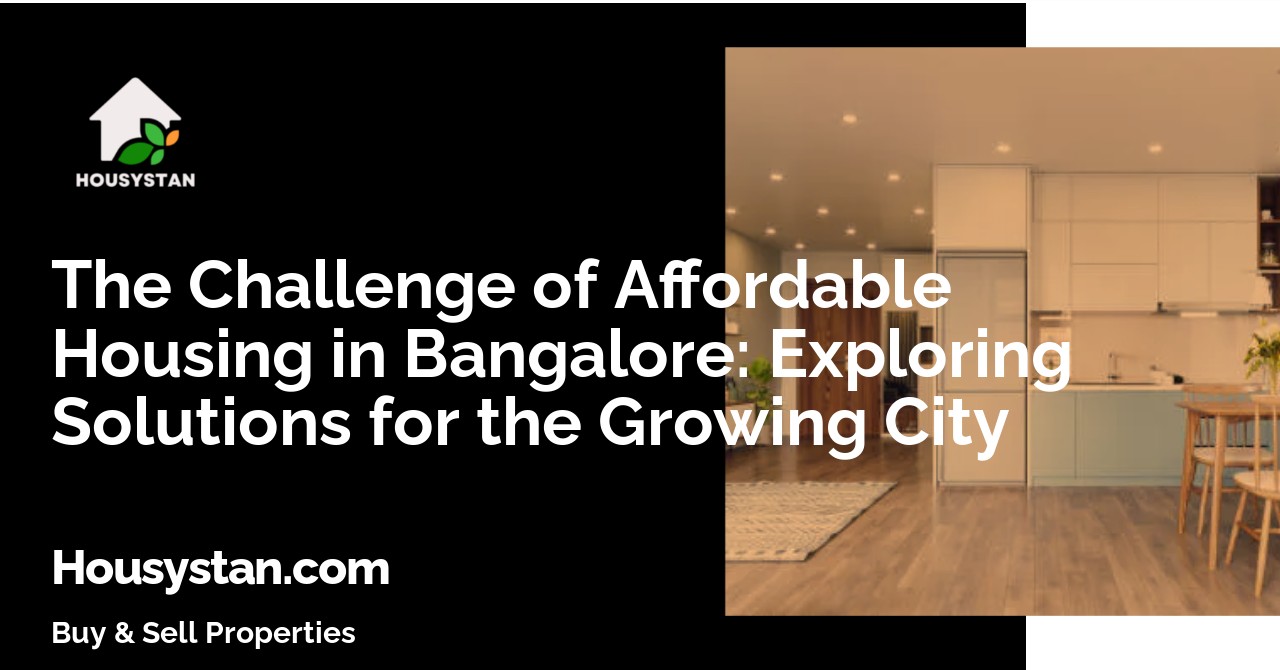The Challenge of Affordable Housing in Bangalore: Exploring Solutions for the Growing City
Read latest blogs and articles from Housystan

The Information mentioned here was last updated on:
29/1/2026The Challenge of Affordable Housing in Bangalore: Exploring Solutions for the Growing City
Bangalore, often called the Silicon Valley of India, has witnessed rapid urban expansion, attracting professionals from across the nation. As the city continues to grow, affordable housing has emerged as a significant concern for both residents and policymakers. With a booming IT sector, diverse employment opportunities, and world-class educational institutions, the population in Bangalore is escalating every year. This growth has led to increased demand for residential properties, pushing real estate prices upward and making it challenging for many families to secure budget-friendly homes.
The scarcity of affordable housing in Bangalore primarily affects middle-income and low-income groups. Rising land costs, limited space within city limits, and stringent regulations have further aggravated the situation. Many working professionals and migrant workers are forced to seek accommodation on the outskirts or in less developed regions, resulting in long commutes and reduced quality of life. Additionally, the lack of well-developed infrastructure in peripheral areas often discourages families from settling there.
- Verified Tenants/Buyers
- Unlimited Property Listing
- Zero subscription/charges fee
To address these challenges, the government and private developers are implementing several innovative solutions. Initiatives such as public-private partnerships, subsidized loan schemes, and incentives for affordable housing projects are being promoted to encourage investment in this sector. The Karnataka government has introduced policies that streamline approval processes and provide tax benefits for developers focused on low-cost housing. Moreover, urban planning efforts are being strengthened to ensure sustainable growth, improved connectivity, and access to essential services in newly developed neighborhoods.
Embracing modern construction technologies, such as prefabrication and eco-friendly materials, can also play a vital role in reducing building costs and timelines. Community-driven models and cooperative housing societies are gaining traction, empowering residents to participate actively in the development process. By fostering collaboration between stakeholders, Bangalore can create a robust ecosystem that supports inclusive and affordable living options for all citizens.
As Bangalore evolves into a global hub, addressing the affordable housing crisis remains crucial for maintaining its appeal and ensuring equitable urban development. By exploring comprehensive solutions tailored to local needs, the city can pave the way for a brighter, more sustainable future for its diverse population.